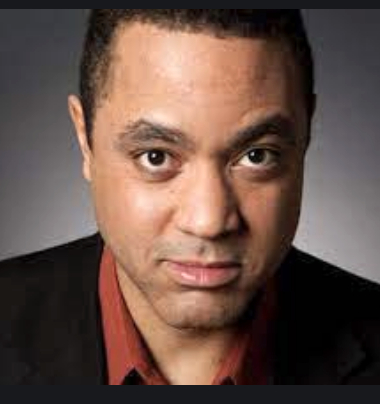On this date in 1965, linguist and author John Hamilton McWhorter V was born in Philadelphia to Schelysture (Gordon) and John McWhorter IV. His mother was a social work professor at Temple University and an active Quaker. His father was a college administrator. He and his sister Holly grew up “in a house full of books” in Philadelphia and attended Friends Select School. He earned a B.A. in French in 1985 from Rutgers University, an M.A. in American studies from New York University and a Ph.D. in linguistics in 1993 from Stanford University.
He held associate professor of linguistics positions at Cornell University from 1993 to 1995 and at the University of California-Berkeley from 1995 until 2003, when he joined the Manhattan Institute for Policy Research, a conservative think tank. He started teaching contemporary civilization at Columbia University in 2008 as an adjunct professor in the department of English and comparative literature, where much of his academic work concerned creole languages and the effects of second language acquisition on a language.
He is fluent in English, French and Russian and can read seven languages. He’s written over 20 books on race and language, including “The Power of Babel: A Natural History of Language,” “Losing the Race: Self Sabotage in Black America” and “Our Magnificent Bastard Tongue: The Untold History of English.” He also contributes regularly to various periodicals and other media and writes a New York Times newsletter.
In his book “Woke Racism: How a New Religion Has Betrayed Black America” (2021), he argues forging identity around victimhood is wrong and infantilizes people. He believes affirmative action should be based on class, not race, and that their attitudes hold Blacks back as much if not more than white racism. He’s faced stiff criticism outside conservative circles for his insistence that so-called critical race theory and cancel culture are a problem in academia and in public schools.
He also teaches music history and has written extensively about music’s various forms, including opera, blues, rap and hip-hop culture. “But always, and forever, Sondheim has been my favorite. His work centers the genre for me — everything is either before or after him — and is one of my favorite things on Earth.”(New York Times, Nov. 30, 2021) McWhorter, who plays piano, says, “Classical music has no significant place in modern American culture today. Nobody is going to come out and play a cello solo on Jimmy Fallon, so students don’t know what the joy of classical can be,” (Columbia College Today, Summer 2017)
While he is not religious, he doesn’t dismiss “the reams of profound, cosmopolitan close reasoning that theology has produced over the millennia, nor is to dismiss devout people as unintelligent. Rather, it would seem to me that religious belief requires a person to sequester a part of their cognition for a kind of belief that is not based on logic.” (“It Bears Mentioning” blog, June 25, 2021)
Asked to list which three scholars, dead or alive, he would invite to a dinner party, he named Stephen J. Gould, W.E.B. Dubois and Camille Paglia. (Columbia News, Jan. 20, 2022).
McWhorter and his former wife have two daughters. He has called his home in the Jackson Heights neighborhood of Queens “one of the most linguistically diverse places on earth.”

